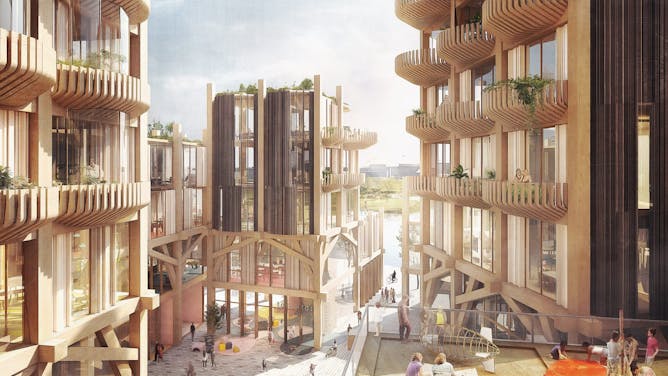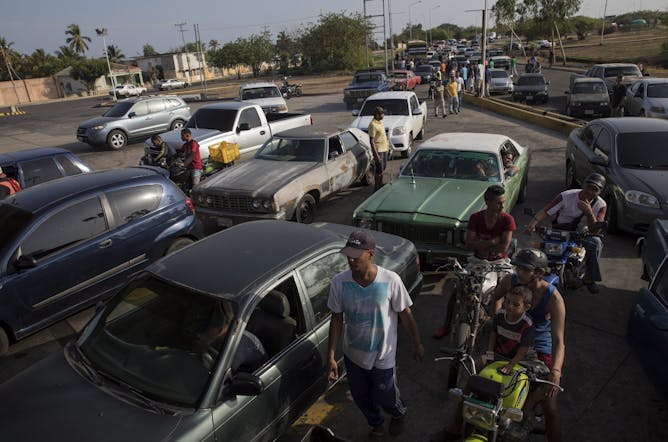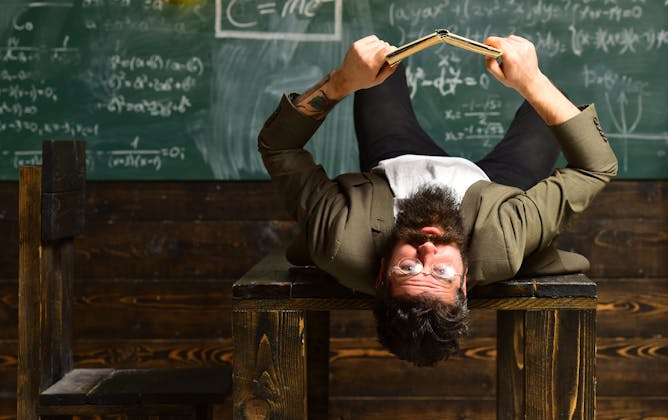|
The Christian right is a formidable force in the United States – exemplified by the seemingly puzzling decision by white evangelicals to overwhelmingly support Donald Trump, a man who hasn’t exactly obeyed the Ten Commandments in her personal life. Today in The Conversation Canada, André Gagné of the department of theological studies at Concordia University explains the Christian right and why it may also have an impact on the upcoming federal election in Canada.
Elsewhere, we look at the economic profile of who use bike-share users and how low-income people could make better use of the program, why there needs to be way more time for public consultation on the controversial “smart city” proposal for Toronto’s waterfront and explain that Canada’s sanctions policy against Venezuela is inhumane.
Our final story delves into the difficulty that people living with HIV experience when it comes to dental care. Abbas Jessani of the University of Saskatchewan tells us that participants in a recent research survey said almost half of people with HIV say they experience discrimination by dental professionals.
Regards,
|

Conservative Leader Andrew Scheer at the Calgary Stampede on July 6. Groups associated with the Christian right are expected to support his political party in the October elections.
The Canadian Press/Jeff McIntosh
André Gagné, Concordia University
The current political climate influenced by white evangelicals in the United States has emboldened similar religious groups in Canada ahead of our own federal election.
|

As bike sharing and other forms of micromobility become more common in global transportation systems, who benefits?
Ben Mater/unsplash
Kate Hosford, Simon Fraser University; Meghan Winters, Simon Fraser University
Combining big data sources about bike-share trips with anonymized data from traditional survey research can best capture who is using bike-share programs.
|

An artist’s rendering of the proposed Quayside neighbourhood in Toronto.
Alphabet Inc. Sidewalk Labs
Blayne Haggart, Brock University
Sidewalk Labs has released its Master Innovation and Development Plan and invited the public to provide feedback.
|

A line of cars spills on to the street as drivers wait to fill their tanks at a fuel station in Cabimas, Venezuela, in May 2019. U.S. sanctions on oil-rich Venezuela appear to be taking hold, resulting in mile-long lines for fuel and other hardships.
AP Photo/Rodrigo Abd)
Ruby Dagher, Carleton University
The devastating costs of economic sanctions on Venezuela are being ignored or disregarded. So too is the lack of a legal basis for international intervention.
|

Only three per cent of HIV organizations in British Columbia offer basic dental care to those who need it.
(Shutterstock)
Abbas Jessani, University of Saskatchewan
Research shows that many people living with HIV struggle with tooth decay, bleeding gums and tooth sensitivity -- due to the costs of dental care and discrimination by dental professionals.
|

Il est temps de pratiquer une certaine dissidence au sein même de l’université.
shutterstock
Julien Lefort-Favreau, Queen's University, Ontario
On ne peut pas produire du neuf sans laisser du temps aux idées pour se régénérer. Cette culpabilité de ne jamais travailler assez est en train d’envahir toutes les sphères du travail immatériel.
|
Health + Medicine
|
-
Alexandra Hansen, The Conversation
We asked five experts if whitening is safe for teeth. They all said it is, so long as it's by a dentist.
|
|
Culture + Society
|
-
Nic Cheeseman, University of Birmingham
Africa's democracies have grown stronger during a period in which the world is backsliding on democracy.
|
|
Politics
|
-
Lee McIntyre, Boston University
To one scholar of the post-truth era, tuning in to Robert Mueller's testimony Wednesday was to hear a duel over the facts. Not what the facts imply – but what the facts are.
|
|